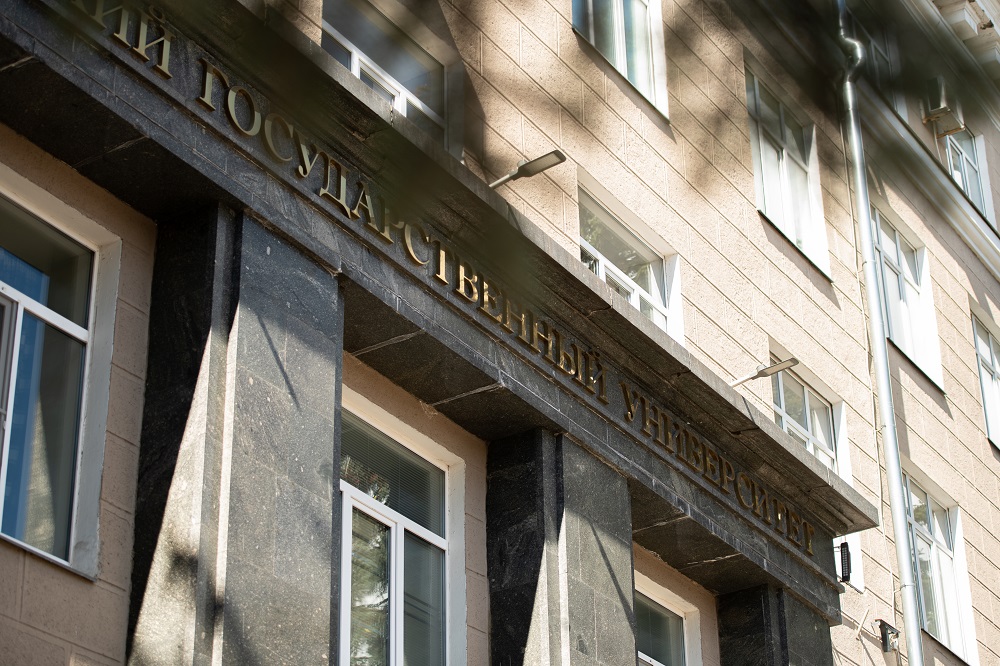- 18.03.2025
New meanings of "Priority 2030" for TulSU
Tula State University has defined a strategic project of technological leadership and successfully defended its development programme within the framework of the "Priority 2030" project.
The ambitious objectives of participation in the federal project "Priority 2030" were formed in the TulSU development programme of the same name in 2021. All components of the university's activity are being transformed: educational, scientific, social. Since then, new educational programmes have been launched, scientific laboratories where mainly young researchers work have been created from scratch, entire scientific areas are being developed, and the infrastructure of TulSU is becoming more convenient and attractive.
The day before, the Council for Supporting University Development Programmes - "Priority 2030" participants approved the list of participants in the main track of the programme for the next year. One hundred of the country's leading universities have been selected, including Tula State University, which will receive up to 100 million roubles for development.
The updated architecture of the Priority 2030 programme evaluates the university's target model and its focus on our country's technological leadership. A distinctive feature of the Council for support for university development programmes was a new look of universities at their development programmes - the focus was on specific projects of interaction with industry.
Valeriy Nikolayevich Falkov, Head of the Russian Ministry of Education and Science:
- This is a serious challenge and an important stage for most universities. Each participant presented a specific technological project, through which we evaluated the entire work, the entire concept of the university's development strategy.
The strategic project of technological leadership, on which TulSU relies for the next ten years, will be the project ‘Composite’. It is based on the end-to-end technologies of new materials, which will allow to obtain new product results for the needs of industrial customers at the interproject junction of competences.
Rector of TulSU Oleg Aleksandrovich Kravchenko:
- The main focus of the “Composite” project is the development of thermoplastic composites, including for additive technologies, and training of personnel with a high level of competence and practical skills. A technological complex will be created, providing a full cycle from synthesis to manufacturing of final parts, tooling and technologies for final products, which will allow to meet the demands of customers interested in different stages of composites technology. The priority industries are defence and petrochemical.
In general, within the framework of “Priority 2030” TulSU sets itself the task to train leaders of the country's engineering corps capable of initiating qualitative changes in industry and introducing new principles of engineering activity. During the four years of the programme implementation the university has shifted from solving scientific problems to implementation of development work and production of pilot batches of products.
In the updated programme TulSU has set a plan to double the annual income from R&D, to increase the average USE score of applicants to 70, and to increase the share of applicants from other regions and countries by one and a half times.
In engineering, the main goal of transformation is to increase practical orientation and formation of cross-cutting competences in the field of artificial intelligence and machine learning. For students in the basic track, mechanisms of dual training will be introduced, for the advanced track - interdisciplinary project work.
Artyom Petrovich Malakho, Technical Director of NPO UNIHIMTEC JSC:
- An important aspect of ‘Priority 2030’ for us is the training of highly qualified specialists - developers and technologists. TulSU not only trains specialists in the sphere of new materials, but also conducts research in the interests of residents of the Innovative Scientific and Technological Centre “Composite Valley”, one of the flagship projects of the region together with the leading academic and scientific institutions of the country.
The network of TulSU youth laboratories continues to be strengthened within the framework of the BioChemTech strategic project.
An institute of scientific workers has been introduced. Currently there are 82 people, including 76 under the age of 39. An effective youth scientific environment has been created, providing mentoring, healthy competition and self-reproduction of scientific personnel. Their achievements: 16 articles were published in scientific journals Q1: Nanoscale, npj Biofilms and Microbiomes, ChemSusChem, Environmental Science: Nano, ACS Applied Polymer Materials. The research teams of the laboratories have received grants totalling about one hundred million roubles, including a PhosAgro/UNESCO/IUPAC international grant in the field of green chemistry in 2024.
Dmitriy Litvinov








